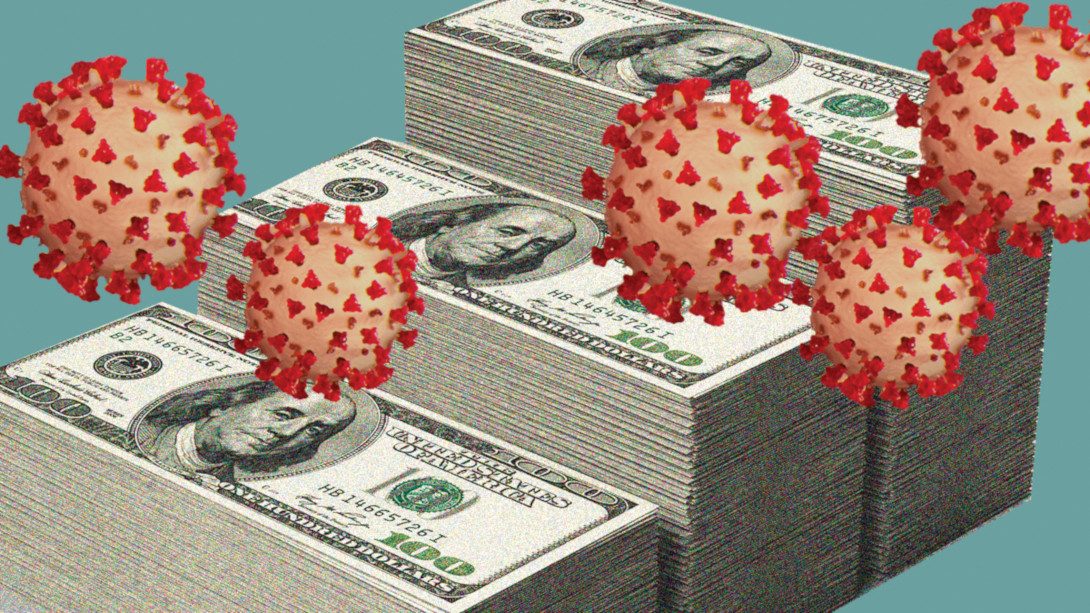How Are Cities Using ARPA Fiscal Recovery Funds?
Local Governments’ Use of ARPA Funds on Community Violence Interventions
Information on this page is no longer being updated. To keep up with this project, visit the COVID Funds for Violence Intervention site.
Principal Investigators: Dr. Amanda Kass, Assistant Professor in the School of Public Service at DePaul University; Dr. Philip Rocco, Associate Professor of Political Science, Marquette University
The passage of the American Rescue Plan Act (ARPA) delivered $350 billion in emergency aid to U.S. states, cities, counties, towns and villages––the largest one-time transfer of multipurpose aid in the last 50 years. Yet given this flexibility, what policy issues are prioritizing in their use of ARPA funds? And what factors affect the decisions cities make?
This project, supported by the Joyce Foundation, will evaluate the barriers to and facilitators of cities’ use of federal dollars to advance community violence intervention strategies.
If you'd like to receive regular updates about this project, including the release of new blogs and white papers, please email Amanda at akass2[at]depaul[dot]edu.
Background Heading link
-
About the Project
The passage of the American Rescue Plan Act (ARPA) delivered $350 billion in emergency aid to U.S. states, cities, counties, towns and villages––the largest one-time transfer of multipurpose aid in the last 50 years. While this aid allows public officials around the country to respond to a variety of health, economic, and infrastructural crises, the Biden administration has encouraged local governments to devote a portion of this funding to public-health interventions designed to reduce the rate of violence crime, especially given the worsening condition of gun violence during the COVID-19 pandemic in many cities. In June 2021, the President also announced the Community Violence Intervention Collaborative (CVIC), which aims at scaling “evidence-based community-led strategies to reduce gun violence and enhance public safety for children, families, and communities”, focusing on 15 communities in the United States.
Still, cities face a number of challenges when it comes to implementing initiatives to reduce violence and reform the criminal justice system. First, cities require high-quality information on the need for violence prevention reforms and the potential effects of evidence-based community-led strategies for reducing gun violence. Second, cities may face fiscal and organizational incentives to spend on pre-existing programs rather than invest in new initiatives. Third, especially in cities with weak fiscal and economic conditions, there may be greater competition among local stakeholders over programs and priorities related to violence prevention.
Over the next two years, Dr. Kass and Dr. Rocco will investigate how 26 cities make investments in community-violence interventions, drawing on a combination of quantitative analyses of city budgets and interviews with key officials and stakeholders from communities directly impacted by violence to understand residents’ needs and the expectations concerning the use of federal aid for these matters. Based on their analyses, they aim to produce policy recommendations and lessons on how future federal aid can be deployed at the local level to address issues of gun violence prevention, justice reform and racial equity.
The Project Blog Heading link

The Project Blog features a succession of posts about the research project as it unfolds. The series captures how we’re tracking how governments are spending their American Rescue Plan Act (ARPA) funds and how ARPA is affecting city governments’ investments in Community Violence Interventions (CVIs). In addition to detailing our research we hope the blogs are useful to others interested in examining how governments are using their ARPA aid.
Project Blog Heading link
News & Updates Heading link
Featured media about the project, academic publications, and information about project related events and updates.
Project News & Updates Heading link
Stay up to date on our research! Heading link
We do not collect and sell e-mail addresses. We will utilize your e-mail to keep you up to date on our latest research as well as new publications, events, and funding competitions. We respect everyone’s privacy and will promptly remove anyone from our e-mail list at any time.